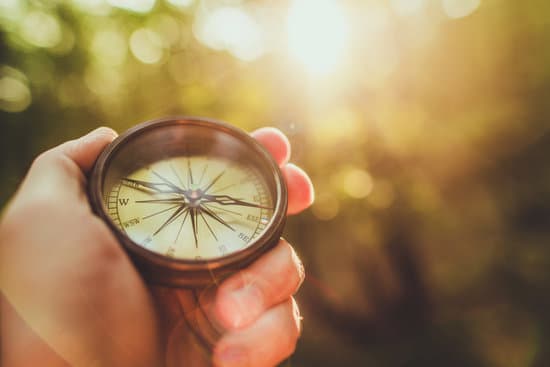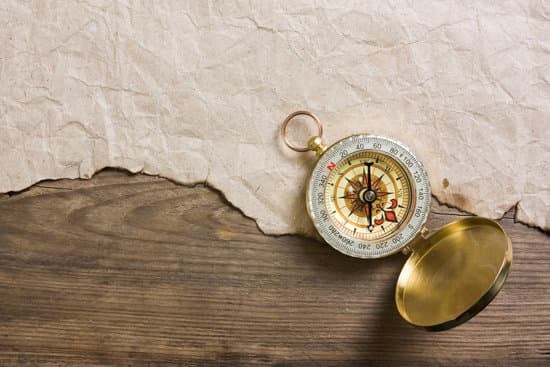Are compasses still used today?

From ancient civilizations to modern times, compasses have played an important role in helping people find their way. But with the advent of GPS and other advanced technologies, many people wonder if compasses are still relevant today. In this article, we’ll explore the history of compasses, their uses today, and whether or not they’re still relevant in our modern world.
Can I use an online compass?
An online compass is a virtual tool that allows you to determine the direction you are facing. It can be used on a variety of devices, including smartphones, tablets, laptops, and desktop computers. But the question remains: Can an online compass be as accurate as a physical one?
The answer is, it depends. An online compass can be just as accurate as a physical compass if it utilizes your device’s built-in sensors, such as the magnetometer and accelerometer. These sensors measure the Earth’s magnetic field and the device’s orientation, respectively, which are used to determine the direction you are facing.
However, there are a few limitations to using an online compass. Firstly, it requires access to the internet to function properly, which may not always be available in remote areas or during outdoor activities. Additionally, online compasses can be affected by interference from nearby magnetic fields, such as those generated by electronic devices or metal objects.
To ensure the accuracy of an online compass, it is important to calibrate it before use. Calibration involves rotating your device 360 degrees while holding it level, allowing the sensors to establish a baseline reading for magnetic north. Some online compasses have a built-in calibration tool, while others may require manual calibration using external references, such as a physical compass or landmarks.
Overall, an online compass can be a convenient and reliable tool for determining direction, especially when physical compasses are unavailable or impractical. However, it is important to understand its limitations and take steps to ensure its accuracy before relying on it for navigation purposes. Onlinecompass.net is one of the popular websites for navigating your way through online compasses, among the many options available.
History of Compasses
The earliest compasses were made in China around 200 BC. These first compasses were made from lodestone, which is a naturally magnetic mineral. The Chinese used these compasses primarily for geomancy, the art of using earth energies to harmonize buildings and environments with nature. It wasn’t until centuries later that compasses were used for navigation.
In the Middle Ages, European sailors began using compasses to navigate the seas. They used magnetic compasses, which were similar to the ones used in China but were mounted on a pivot so they could move freely. With the help of compasses, sailors were able to navigate the vast oceans and discover new lands.
Compasses continued to evolve over time. By the 17th century, compasses had become more accurate and reliable, thanks to advancements in technology. The invention of the marine compass, which was designed specifically for use at sea, made it possible for sailors to navigate with even greater precision. Today, compasses come in a variety of shapes and sizes and are used for a wide range of applications.
Types of Compasses
There are several types of compasses, each with its own unique features and benefits. Here are some of the most common types of compasses:
Magnetic Compass – A magnetic compass is the most common type of compass. It works by using a magnetized needle that aligns itself with the Earth’s magnetic field. The north end of the needle points towards the North Pole, while the south end points towards the South Pole.
Gyrocompass – A gyrocompass is a more advanced type of compass used in marine navigation. It uses a spinning wheel to provide a stable reference point for navigation, instead of relying on the Earth’s magnetic field.
Digital Compass – A digital compass uses electronic sensors to detect changes in magnetic fields and calculate direction. Digital compasses are often found in smartphones and other portable devices.
Lensatic Compass – A lensatic compass is a military-grade compass designed for use in rough terrain. It has a sighting mechanism that allows it to be used with one eye closed, making it easier to navigate in difficult conditions.
Solar Compass – A solar compass uses the position of the sun to determine direction. It’s commonly used in surveying and land management.
Uses of Compasses Today
While GPS has largely taken over the role of navigation in modern society, compasses are still widely used today. They are used in a variety of fields, including aviation, surveying, hiking, camping, and orienteering. Here are some of the most common uses of compasses today:
Navigation: Compasses are still used by hikers, campers, and outdoor enthusiasts to navigate unfamiliar terrain. When GPS devices fail or batteries die, a simple compass can be a lifesaver.
Orienteering: Orienteering is a sport that involves using a map and compass to navigate through a course. It requires both physical fitness and mental agility and is popular around the world.
Surveying: Surveyors use compasses to take measurements and determine the location of boundaries. They also use them to locate underground utilities and other structures.

Aviation: Pilots use compasses as part of their navigation systems. In addition to GPS and other advanced technologies, compasses are still an important tool for pilots.
Geology: Geologists use compasses to measure the orientation of rock formations. This information is used to study the structure and history of the Earth’s crust.
Military: Compasses are still used by militaries around the world. They are used by soldiers to navigate in unfamiliar terrain, and by commanders to plan strategic operations.
Art: Some artists use compasses as a tool for creating precise circles and angles. They are especially useful for drafting, technical drawing, and design work.
Compasses in Navigation
One of the primary uses of compasses throughout history has been for navigation. While GPS has largely taken over as the primary navigation tool in modern times, compasses are still widely used today. Compasses provide a reliable backup for navigation when GPS isn’t practical or reliable. In addition, compasses are often used in combination with maps to provide a more comprehensive understanding of a given area.
Conclusion
In conclusion, compasses are still relevant in our modern world. While GPS and other advanced technologies have largely taken over the role of navigation, compasses are still widely used in a variety of fields. They provide a reliable backup for navigation in situations where GPS isn’t practical or reliable. Compasses are also popular among outdoor enthusiasts who enjoy the challenge of orienteering. Whether you’re a hiker, surveyor, pilot, geologist, or member of the military, a compass can provide a reliable tool for navigation and orientation. So the next time you head out into the great outdoors, consider bringing along a trusty compass.
This article is an advertisement and Mehr News Agency has no opinion on its content.
source: en.mehrnews.com





